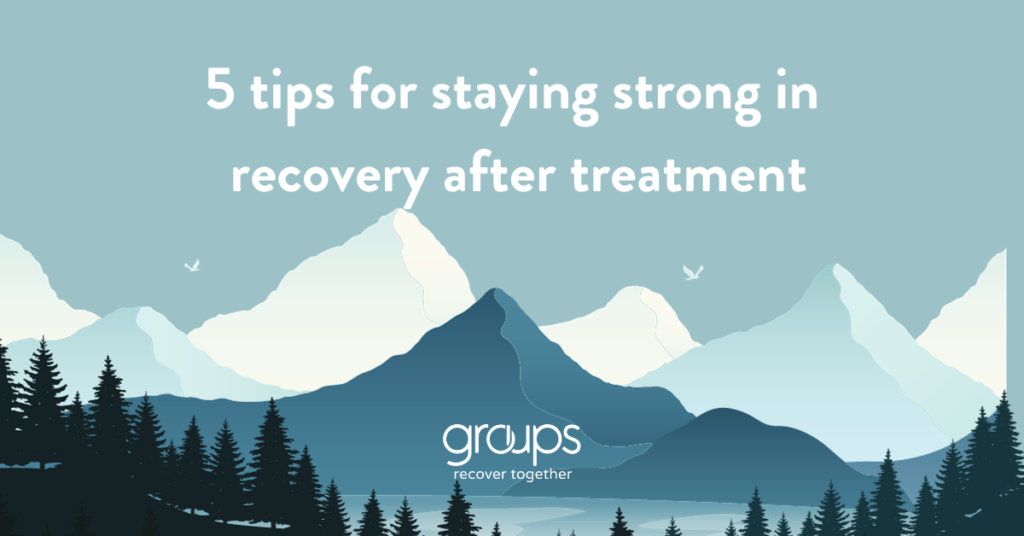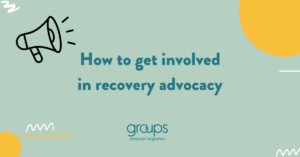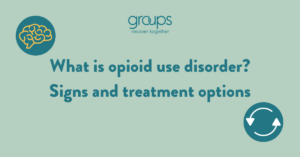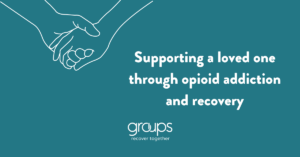Written by: Sarah DuRivage-Jacobs
Fact Checked By: Amy Spier, LCSW
Treatment and recovery can look different from person to person. Wherever you are right now, you have the power to meet your recovery goals. Even if you’re no longer in group therapy or taking medication.
“When we have the skills and we know how to use them, that’s when recovery is possible,” explains Counselor Nick from our Terre Haute, IN office. “That’s when you can succeed.”
If you’ve been a Groups member, you already have skills and know how to use them. But everyone could use a reminder once in a while. So, we asked our Recovery Counselors for advice on dealing with cravings and other challenges as they come up.
1. Remove yourself from triggering situations.
While in treatment, you likely learned and talked about your triggers. Those don’t always go away just because treatment ended.
Remember that you can choose to leave situations if they trigger you. “You cannot control all of your life circumstances, but you can control your reaction,” says Counselor Bryan from our London, KY office.
Be mindful of “People, Places, and Things” that could put you back in a using mindset:
- Always have an exit plan when you’re at a party, like driving yourself or calling a taxi.
- Change your walk home so you don’t pass by locations that make you think about using.
- Call a sober buddy before and after an event to check in.
Making these kinds of decisions is never easy, but it’s important to prioritize your comfort and well-being.
2. Practice your coping skills.
Coping skills are tools you can use to respond to challenges and stressors in ways that match up with your recovery goals. They’re helpful for anyone who’s in recovery — whether they’ve been in it for weeks or for years.
If you’ve been in treatment, you may already have a toolbox full of coping skills. Counselor Jeremy from our Farmington, ME office has a few more worth considering:
Visualization
Picture a light switch in your mind. Imagine yourself flicking it from ON to OFF. As you’re flicking the switch to the OFF position, imagine you’re also turning off your negative thoughts.
Snapping
Wear a rubber band around your wrist. When unwanted thoughts come up, lightly snap the rubber band against your wrist and say “No!” to the thoughts. Then gently turn your mind to something else.
The memento strategy
Find an item that reminds you of why you’re in recovery. It can be a photo of your family, a child’s drawing, or a reminder of where you’ve been. When you feel cravings or face other challenges in your journey, grab the memento and use it to refocus.
3. Prioritize self-care.
“Practicing self-care is not selfish. It’s very important,” says Counselor Helen from our Rockland, ME office. “Imagine if you were on a plane. The flight attendant comes to the front of the plane, and they’re instructing you on how to put on your mask. If there’s an emergency, you can’t help anybody unless you help yourself first.”
Self-care might look like going outside for 30 minutes, reading a book, or lighting a candle. Whatever makes you feel good — and gives you the strength to show up for yourself as well as the important people around you.
4. Show yourself compassion.
Counselor Jennifer recommends remembering that mistakes happen. They’re a part of the process for most people in recovery. If you feel like you’ve made a mistake, show yourself compassion. Try to learn from it and keep moving forward.
What does this mean in practice?:
- Reflect on the mistake and try to understand what triggered you. Journaling may be a helpful way to process what happened and make sense of it.
- Forgive yourself. Recovery is a journey, and it’s very rarely a straightforward one. Every twist and turn is important because it’ll help you get to where you want to be.
- Get support if you need it. No matter how long it’s been since you were last at Groups, we are always here for you. You can call us any time of day or night, 365 days a year.
5. Call a trusted friend or tap into your recovery community.
Having a solid support system in place is key for long-term recovery. Counselor Cherry recommends making a list of all the supportive people in your life and how they can support you.
Who can you call in the middle of the night? Who is always willing to give you a ride? Who can take care of your kids? Keep the list in your phone or place it in your wallet




